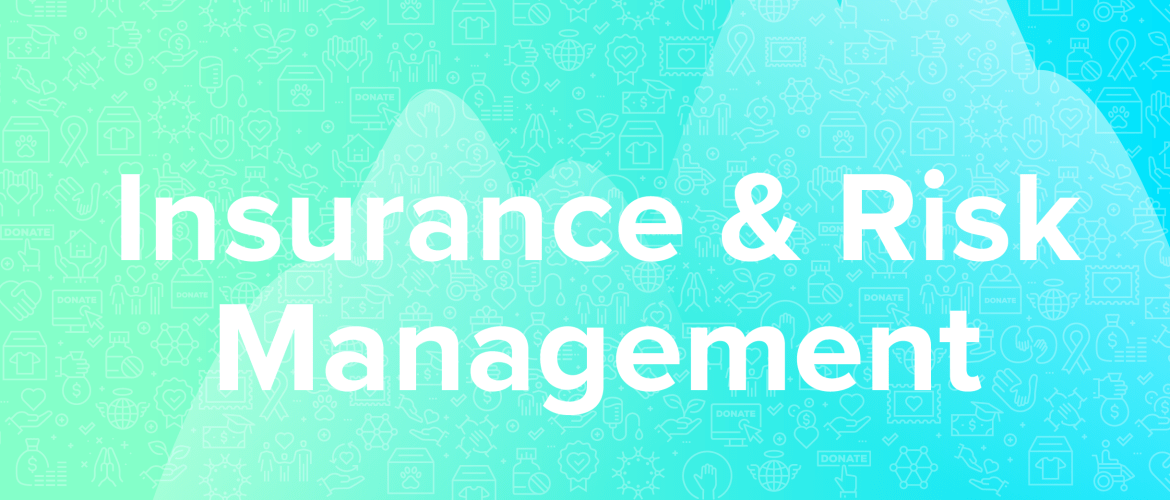Insurance and risk management fbla – Insurance and risk management are essential components for Future Business Leaders of America (FBLA) members to understand and implement. This guide provides an overview of the types of insurance relevant to FBLA, risk management strategies, and the role of insurance and risk management in FBLA competitions.
Understanding insurance and risk management is crucial for FBLA members to protect themselves, their chapters, and their events from potential financial losses and liabilities.
Introduction

Insurance and risk management are crucial aspects for Future Business Leaders of America (FBLA) members to understand and implement. By gaining a comprehensive knowledge of these concepts, FBLA members can effectively protect themselves, their chapters, and the organization as a whole from potential risks and liabilities.
Understanding insurance and risk management is essential for FBLA members as they engage in various activities, including chapter meetings, community service projects, and competitive events. It empowers them to make informed decisions, mitigate potential risks, and ensure the safety and well-being of all involved.
Types of Insurance for FBLA: Insurance And Risk Management Fbla
General Liability Insurance
General liability insurance provides coverage for bodily injury, property damage, and personal injury claims arising from the negligence of the insured party. It is essential for FBLA chapters and members who host events, conduct activities, or interact with the public.
Professional Liability Insurance
Professional liability insurance, also known as errors and omissions (E&O) insurance, protects individuals and organizations from claims of negligence or errors in the performance of their professional duties. This type of insurance is particularly relevant for FBLA members who provide consulting or advisory services.
Event Insurance
Event insurance provides coverage for financial losses and liabilities associated with hosting or participating in events. It is essential for FBLA chapters planning to organize events such as conferences, workshops, or competitions.
Travel Insurance
Travel insurance provides coverage for unexpected events and emergencies that may occur during travel, such as lost luggage, medical expenses, or trip cancellations. It is beneficial for FBLA members who travel for competitions, conferences, or other chapter activities.
Risk Management Strategies

Identifying Risks
The first step in risk management is identifying potential risks. This can be done through risk assessments, brainstorming sessions, and reviewing past incidents or near-misses.
Assessing Risks
Once risks have been identified, they need to be assessed in terms of their likelihood and severity. This assessment helps prioritize risks and allocate resources for mitigation.
Controlling Risks
Once risks have been assessed, strategies can be implemented to control or mitigate them. These strategies may include avoiding risks, reducing risks, transferring risks through insurance, or accepting risks.
Effective Risk Management Practices in FBLA, Insurance and risk management fbla
- Regularly conduct risk assessments for chapter activities and events.
- Establish clear safety protocols and guidelines for all chapter activities.
- Train members on risk management best practices.
- Maintain adequate insurance coverage for all chapter activities.
- Document all risk management efforts and procedures.
Insurance and Risk Management in FBLA Competitions

Role of Insurance and Risk Management
Insurance and risk management play a vital role in FBLA competitions by providing financial protection and mitigating potential liabilities. Adequate insurance coverage ensures that FBLA members and chapters are protected from financial losses and legal claims.
Obtaining Insurance Coverage
FBLA members and chapters should obtain adequate insurance coverage for all competitions. This includes general liability insurance, event insurance, and travel insurance as necessary.
Managing Risks Associated with Competitions
In addition to insurance coverage, FBLA members and chapters should implement risk management strategies to minimize the risks associated with competitions. These strategies may include:
- Thoroughly preparing for competitions and practicing safety measures.
- Adhering to all competition rules and regulations.
- Supervising members and ensuring their safety during competitions.
- Documenting all risk management efforts and procedures.
Case Studies and Examples
Case Study: FBLA Chapter Secures Insurance Coverage for State Conference
A FBLA chapter in a large state was hosting the state conference for over 500 attendees. The chapter obtained general liability insurance, event insurance, and travel insurance to protect itself and the attendees from potential risks. The insurance coverage provided peace of mind and allowed the chapter to focus on hosting a successful event.
Example: Risk Management Plan for FBLA Business Plan Competition
A FBLA member participating in the Business Plan Competition conducted a risk assessment and identified potential risks such as technical difficulties, plagiarism, and intellectual property theft. The member developed a risk management plan that included strategies to mitigate these risks, such as preparing backup presentations, citing sources properly, and obtaining permission to use copyrighted materials.
FAQ Resource
What types of insurance are relevant to FBLA members?
General liability insurance, professional liability insurance, event insurance, and travel insurance are all relevant to FBLA members.
What are some risk management strategies that FBLA members can implement?
Identifying, assessing, and controlling risks are key risk management strategies for FBLA members.
How can FBLA members obtain adequate insurance coverage for their events?
FBLA members can obtain adequate insurance coverage by working with insurance professionals to assess their risks and secure appropriate policies.